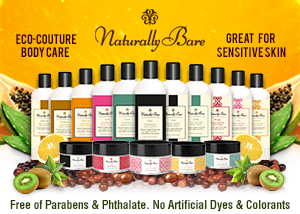Tisk Tisk
Tisk Tisk
By Grace Bell
You know the seven deadly sins of behavior—greed, gluttony, etc. Just as
classic, in the cleaning arena, anyway, are the seven sins of greenwashing.
This set of sins may not date back to biblical times, but they do represent the
largest analysis of green claims to date. In all, more than 2,200 products—
representing nearly 5,000 green claims—were tested against industry guidelines.
While not new news and based on the analysis on products found in big box
stores, the findings are of such import in the green category as a whole that we
want to make sure you’ve seen it. Here then is a summary of “The Seven Sins of
Greenwashing,” which found that more than 98 percent of green goods studied
were guilty of at least one of the “sins.” In fact, of the 2,219 products making
green claims, only 25 were guilt-free.
1. HIDDEN TRADE-OFF. This sin is committed “by suggesting a product
is ‘green’ based on an unreasonably narrow set of attributes without attention
to other important environmental issues. Paper, for example, is not necessarily
environmentally preferable just because it comes from a sustainably harvested
forest.”
2. NO PROOF. This is an environmental claim that can’t be substantiated
by “easily accessible supporting information or by a reliable third party
certification. Common examples are toilet tissue products that claim various
percentages of post-consumer recycled content without providing any evidence.”
3. VAGUENESS. Guilty here are those claims that are either “so poorly defined
or broad that their real meaning is likely to be misunderstood. ‘All-natural’ is
an example. Arsenic, uranium, mercury, and formaldehyde are all naturally
occuring, and poisonous.” So, just because something is ‘all natural’ doesn’t
mean it is ‘green.’
4. IRRELEVANCE. Some products make environmental claims that may be
true, but they’re either not important or not helpful to purchasers looking for
environmentally preferable goods. As an example, ‘CFC-free’ is a frequent claim,
despite the fact that all CFCs are already banned.
5. LESSER OF TWO EVILS. These are “claims that may be true within
the product category, but that risk distracting the buyer from the greater
environmental impacts of the category as a whole.” Two examples? Organic
cigarettes and fuel-efficient SUVs.
6. FIBBING. Though the least common of the sins, “fibbing” is committed
by making environmental claims that, simply put, are not true. “The most
common examples were products falsely claiming to be Energy Star certified or
registered.”
7. FALSE LABELS. Through words or images, such a product gives the
impression “of third-party endorsement where no such endorsement actually
exists; fake labels, in other words.”
While originally applied to would-be green products that are available to
consumers, the warnings and messaging in these seven “sins” are just as
important to consider when purchasing green products for commercial use.
For more info, go to: www.sinsofgreenwashing.org


CONNECT WITH US